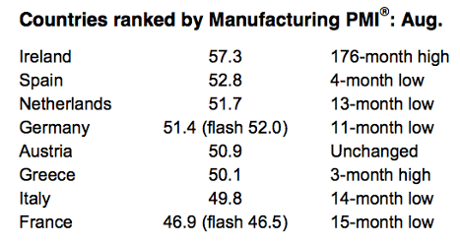 Leaders from the 28 Nato countries are expected to approve the plan at the alliance's summit in Wales when the Ukraine crisis tops the agenda on Friday. The Nato secretary-general, Anders Fogh Rasmussen, said the force, drawn on rotational basis from Nato allies, could be in action at "very, very short notice".
Leaders from the 28 Nato countries are expected to approve the plan at the alliance's summit in Wales when the Ukraine crisis tops the agenda on Friday. The Nato secretary-general, Anders Fogh Rasmussen, said the force, drawn on rotational basis from Nato allies, could be in action at "very, very short notice".
Rasmussen described it as a mixture of regular troops and special forces that could "travel light but strike hard". It would be supported by air and naval forces as needed. He declined to say how many troops would be engaged but Nato officials said it would number around 4,000 and would be expected to deploy to any alliance member country within 48 hours.. "It is so that we are ready should something nasty happen," a senior Nato official said. Russia is likely to view the creation of the high-readiness force as an aggressive move. Nato has struggled to find a response to Russia since the Ukraine crisis began in February, beyond increased military exercises in the Baltic states. One of the biggest criticisms of Nato's response to Russian actions has been its lack of speed and flexibility. The spearhead force does not help with the immediate crisis in Ukraine, which is facing Russian incursions in the east and south of the country. But the force might have a deterrent effect if Russia was considering destabilising the Baltic states. Since the annexation of the Crimean peninsula by Russia in March, Poland and other east European and Baltic state members of Nato have demanded the alliance take a more active and high-profile role in their defence. Other allies, however, have been wary of doing anything that might endanger a 1997 agreement with Moscow under which Nato pledged not to base substantial numbers of soldiers in eastern Europe on a permanent basis. Officials said that troops would be constantly rotated, in order not to violate the 1997 agreement. However, the constant rotation will in effect mean Nato will have a permanent presence in the Baltic states. Airfields and seaports in the region could also be upgraded to permit their use by the force, Rasmussen said. Officials said the creation of the force, formally named the high-readiness joint task force, had been triggered by the Ukrainian crisis and military planners have been working on it since. "Elements of the force should be in place by Christmas," an official said.






